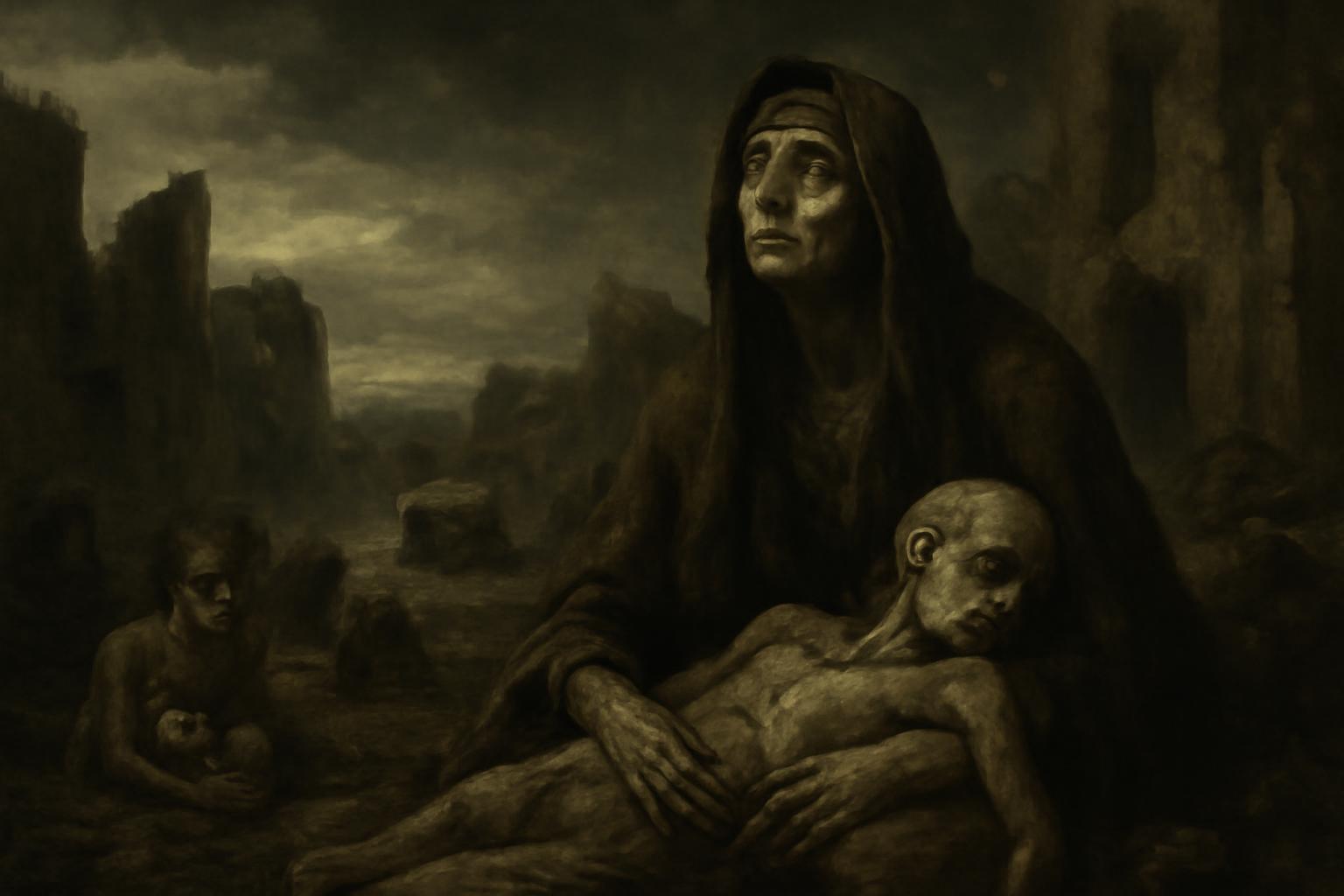Once again, the theatre of suffering intensifies on the world’s stage, where hungry multitudes wander Gaza’s blasted land, their cries for bread muffled by the unyielding hand of siege and the meagre charity of airdropped parcels — silvered Promethean gifts that drop from the sky, too few and too perilous for the city’s labyrinthine streets. The mighty World Food Programme, despairing at the futility of their gestures, underscores the Sisyphean requirement: five hundred trucks a day, a figure that looms like a spectral chorus invoking necessity while faced with the stubborn stone of blockade. Only a trickle traverses the gates, dribbling in the face of mounting famine.
All the while, the keepers of the border, ensconced in their citadels, deny the word “famine” as if to deny a word is to annul its weight; but suffering is not so easily conjured away. Gazan men and women clutch the withered stalks of hope, enacting an unending Nemesis, condemned by the blindness of power and the impotence of charity alike. Banished into the realm of shadows, waiting in the ruins among the hunger-wracked children, they echo the tragic chorus of Aeschylus, bearing the burden of fate shaped by the gods’ indifference and the hubris of men.
What tragedy is more contemporary than this, where compassion is rationed, truth dismissed as so much “lie,” and the machinery of relief grinds on, Kafkaesque and futile? Each diplomatic gesture, each “opening” of safe corridors, proves a vanishing balm that cannot stem the soil’s thirst nor fill a single empty bowl. Nietzsche foresaw this twilight — a world enervated, estranged from the Dionysian wells of compassion, locked in a mechanistic logic where everything vital is sacrificed to expediency and the corpse of civilization is embalmed in statistics.
The West, so proud of its Enlightenment, stands bereft and paralyzed, its vaunted Reason transmuted into bureaucratic ritual, its moral sensibility an echo among ruins. How hollow ring our once-mighty ideals, when famine stares from the periphery and the angels of aid are denied their mission by walls of steel, suspicion, and the cheerless calculation of diplomats. Here dawns, yet again, the realization of philosophical pessimism: that man’s suffering can be amplified not only by fate or nature, but by the cold, deliberate decisions of his fellows. And so, shorn of pathos and heroism, we drift further from the sources of our own dignity, groping among the detritus of a collapsed moral order, powerless while yet another chorus sings its bitter lament into the void.
